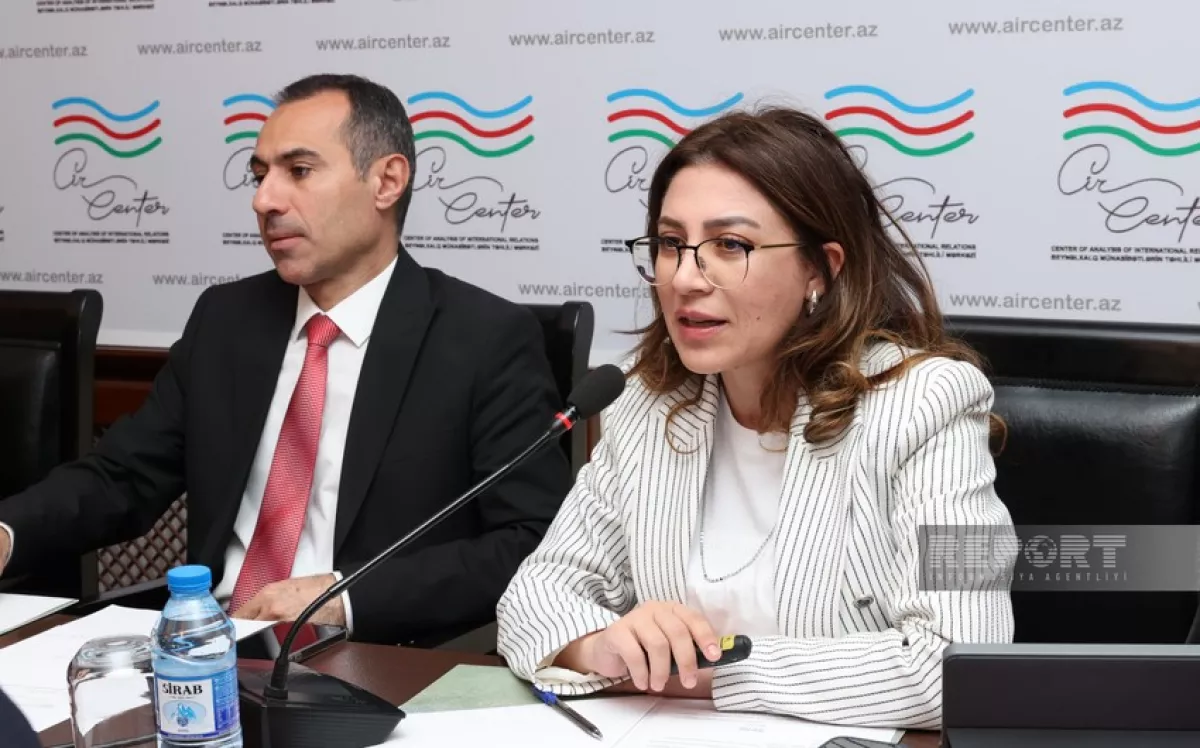Expert: Zangezur Corridor seen as “path to peace”, gateway to Turkic unity
Esma Özdaşli, a foreign policy commentator and lecturer at Burdur Mehmet Akif Ersoy University, described the Zangezur corridor as a “corridor of peace,” arguing that its opening would most benefit Armenia—a nation she described as economically constrained and resource-poor.
Speaking at the forum titled “Threats and opportunities posed by new geopolitical realities for Turkish-Azerbaijani relations," Özdaşli underscored Armenia’s potential economic gains from the corridor’s opening, stressing that the initiative could offer transformative benefits, particularly for Armenia—a country she noted as lacking in natural resources, Caliber.Az reports via local media.
“Armenia stands to benefit the most from the Zangezur corridor, given its limited access to natural resources and trade routes. However, any progress must begin with Armenia removing constitutional clauses that include territorial claims against Azerbaijan,” Özdaşli asserted.
The Zangezur corridor, envisioned to connect mainland Azerbaijan with its exclave Nakhchivan through southern Armenia, has been a point of contention in regional diplomacy following the 2020 Karabakh war and subsequent trilateral agreements brokered by Russia.
Özdaşli did not mince words in her assessment of Armenia’s broader posture, stating, “In general, Armenia’s aggressive behaviour is unacceptable.” She argued that such actions not only hinder regional peace efforts but also isolate Armenia diplomatically and economically.

Her comments feed into a larger narrative echoed by fellow panelist Damla Taşkın, a lecturer at Ankara Science University, who examined the corridor’s role in facilitating broader geopolitical integration among Turkic states. Taşkın focused on the concept of “leader diplomacy”—a model of statecraft driven by direct, sustained personal engagement between national leaders—highlighting its significance in Türkiye-Azerbaijan relations.
“With the Karabakh victory, leader diplomacy reached a new milestone,” Taşkın noted. “This was not just a military win, but a diplomatic turning point that paved the way for integrating the Middle Corridor and the Zangezur corridor into the broader Turkic world.”
She pointed to the Shusha Declaration, signed in 2021, as a cornerstone of bilateral cooperation, and praised the unusually close relationship between the presidents of Türkiye and Azerbaijan—leaders who, she emphasized, meet more frequently than any other world leaders.
However, Taşkın warned that the growing unity among Turkic nations is not without its adversaries. “There are forces—both regional and global—that do not want the Turkic world to unify,” she said. “Yet, our reliance on leader diplomacy is a strategic countermeasure that continues to frustrate those efforts.”
She also observed that this diplomatic model is gaining traction beyond the Turkic sphere. “Even in the West, leader diplomacy is becoming more prominent. US President Donald Trump, for example, attempted to apply this approach in his foreign policy,” Taşkın added.
By Vafa Guliyeva








